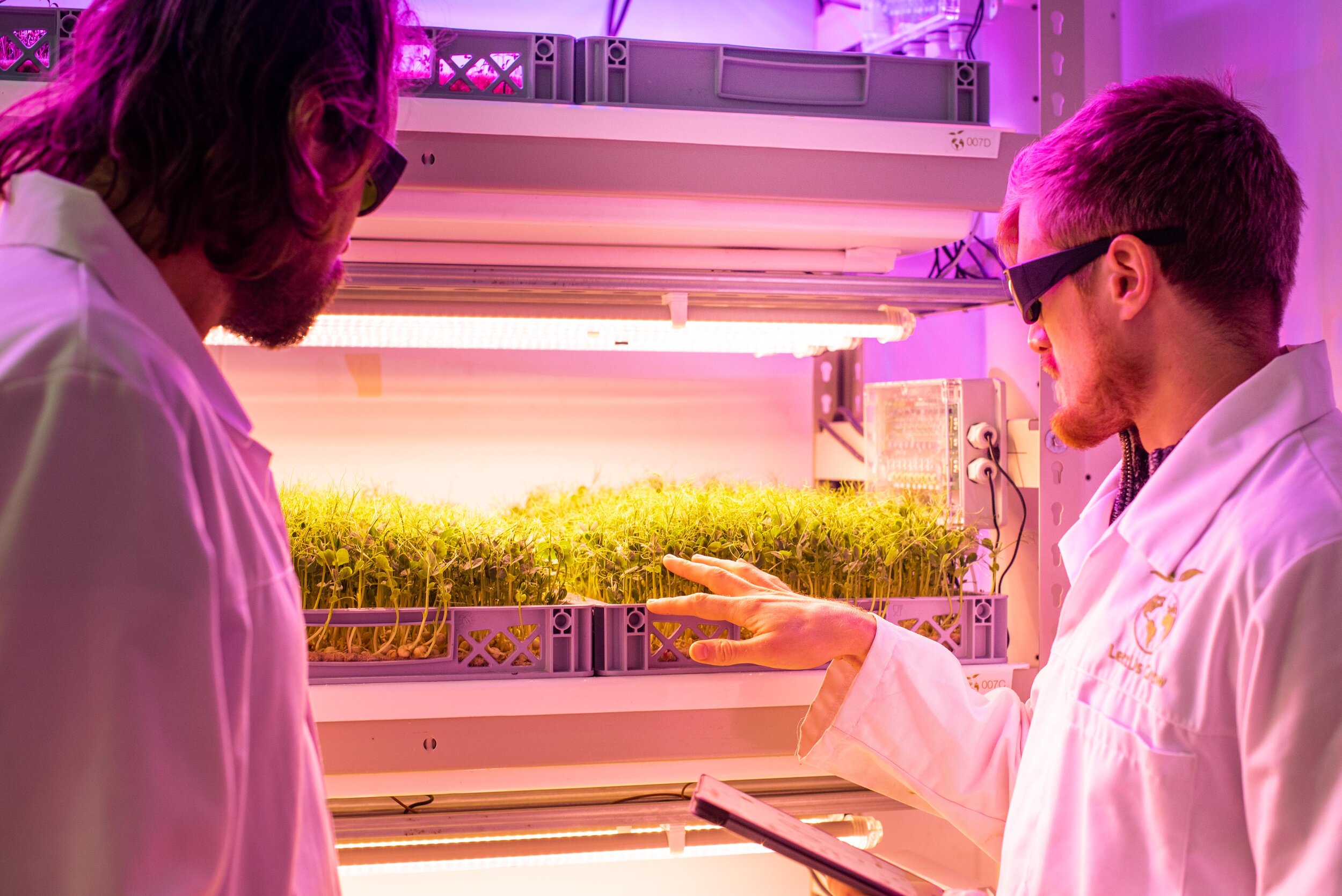PhD opportunity: Vertical farming around the clock
PhD opportunity::
Vertical farming around the clock
Vertical farming involves plant growth in stacked indoor facilities that often use artificial lighting and soilfree cultivation methods. We invite applications to a PhD studentship at the John Innes Centre investigating the impact of the circadian regulation of plant metabolism upon vertical farming. The project will use fundamental science to investigate the role of circadian regulation in the molecules that are exuded by crops into the irrigation systems. This is a BBSRC NRPDTP-funded CASE studentship, based in the laboratory of Antony Dodd and co-supervised by Anne Osbourn, in collaboration with vertical agriculture R&D company LettUs Grow.
The project will combine fundamental research into circadian regulation of the plant genome and metabolism at the John Innes Centre with experimentation in the experimental vertical farm environment at LettUs Grow. The project has the long-term goal of providing benefits to the vertical farming business whilst making new discoveries and the frontiers of knowledge of the daily co-ordination of plant metabolism. The project is likely to suit a student with interests in gene regulation, metabolism and bioinformatics.
The project will provide training in fundamental plant sciences research with Arabidopsis and a variety of molecular biology, biochemical and bioinformatic approaches for investigating plant gene expression and metabolism. Training will also be provided in specialized methods for investigation of circadian rhythms (e.g. specialist aspects of experimental design, and the mathematical analysis of circadian timecourse data), data synthesis and the preparation, and publication of high-quality research papers. A placement at LettUs Grow in Bristol, to perform experiments and learn about the vertical farming industry, will form the foundation for ongoing collaboration with the company throughout your PhD.
Application deadline
23rd November 2020
Supervisor
Dr Antony Dodd
Research areas
Sustainable Agriculture and Food
How to apply
References:
Eldridge BM, Manzoni LR, Graham CA, Rodger B, Farmer JR, Dodd AN (2020). Getting to the roots of aeroponic indoor farming. New Phytologist https://doi.org/10.1111/nph.16780
Belbin FE, Hall GJ, Jackson AB, Schanschieff FE, Archibald G, Formstone C, Dodd AN (2019). Plant circadian rhythms regulate the effectiveness of a glyphosate-based herbicide. Nature Communications 10, article 3704.
Huang AC, Jiang T, Liu YX, Bai YC, Reed J, Qu B, Goossens A, Nutzmann HW, Bai Y, Osbourn A (2019). A specialized metabolic network selectively modulates Arabidopsis root microbiota. Science 364, article eaau6389.

